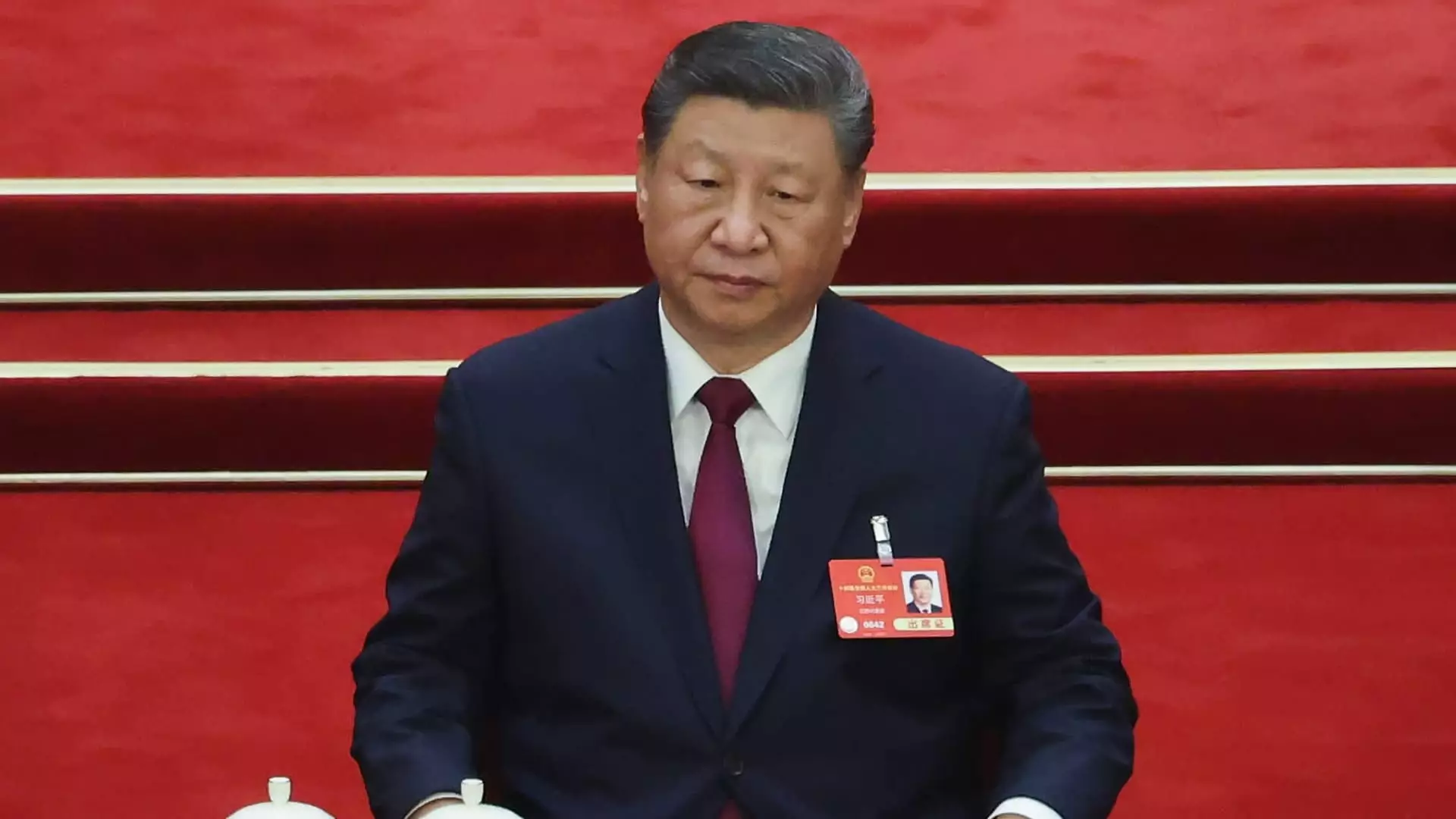The current face-off between the United States and China over tariffs has escalated into an alarming conflict that threatens to destabilize not only their respective economies but also the global economy. The Trump administration has implemented some of the most aggressive tariff policies seen in decades, and China has retaliated in an equally formidable manner. By raising tariffs on U.S. imports to an astonishing 84%, China seems to be signaling that it will not easily back down in this trade war. As the stakes rise, both countries risk plunging into a destructive economic spiral that could cripple trade relations.
The Numbers Game
At the heart of this trade skirmish are staggering economic figures that highlight the underlying imbalance. In 2024, the U.S. exported $143.5 billion to China, while its imports from China reached a staggering $438.9 billion. This discrepancy underscores a bitter truth: America is losing its competitive edge in a rapidly globalizing economy. The solution proposed by officials in the Trump administration—a barrage of tariffs—might be intended to level the playing field, but in reality, it perpetuates an adversarial approach to international trade. Instead of fostering negotiations and compromise, these punitive measures entrench a unilateral narrative that favors one nation over another.
Global Reaction: A House Divided
While the tit-for-tat escalation has rattled markets worldwide, the international response has been mixed. Some nations, such as Japan, appear open to negotiating changes to trade agreements. However, China’s immediate and robust counter-measures indicate that it is not prepared to accept the narrative that paints it as the villain in this trade saga. U.S. Treasury Secretary Scott Bessent’s assertion that “the Chinese actually don’t want to come and negotiate” reflects a deeply rooted belief that complicates any chance of diplomacy. In stark contrast to cooperative solutions, Washington seems intent on chastising Beijing for its past actions while refusing to acknowledge its own role in creating this economic turmoil.
The Negative Consequences
The ramifications of these hostile policies extend beyond the immediate economic landscape; they reach into the lives of ordinary people. Investors have reacted chaotically, with sharp sell-offs signaling fears of slower growth and rising inflation. As the S&P 500 slid nearly 20%, investors suddenly find themselves in a bear market, raising questions about the sustainability of economic recovery. It’s not just American investors who are feeling the tremors; South Korea’s Kospi Index also succumbed to bearish tendencies, while Chinese stock markets have been equally hard hit. The economic linkage between these countries illustrates just how intertwined global economies have become. This race to the bottom in tariffs may ultimately impoverish both nations and trigger broader financial instability worldwide.
Jobs at Risk: The Human Cost of Tariffs
As corporations brace for the fallout from rising tariffs, thousands of American jobs hang in the balance. Industries that rely on imported materials to manufacture goods face increased costs, compelling them to either absorb those costs or pass them on to consumers. Either way, it results in uncertainty and declines in consumer confidence. Middle-class households already burdened by rising inflation may soon find themselves facing higher prices at the grocery store and the gas station. Despite the administration’s insistence that these tariffs are a strategy to protect American jobs, they could have the opposite effect in the long run, pushing businesses to cut jobs rather than expand.
A Call for Constructive Dialogues
The overarching sentiment in this contentious environment is one of frustration, particularly for those who view these trade skirmishes through a lens of potential collaboration. Instead of escalating tensions through punitive tariffs, a more progressive and effective strategy would involve engaging in constructive dialogues aimed at resolving trade imbalances thoughtfully and fairly. It requires a shift in mindset from one centered on retribution to one focused on cooperation and mutual benefit. The economic landscape of the 21st century demands shared solutions, not divisive wars that further alienate global powers while eroding public trust and financial well-being. The time has come for Washington to seek out a diplomatic path before it is too late.


Leave a Reply